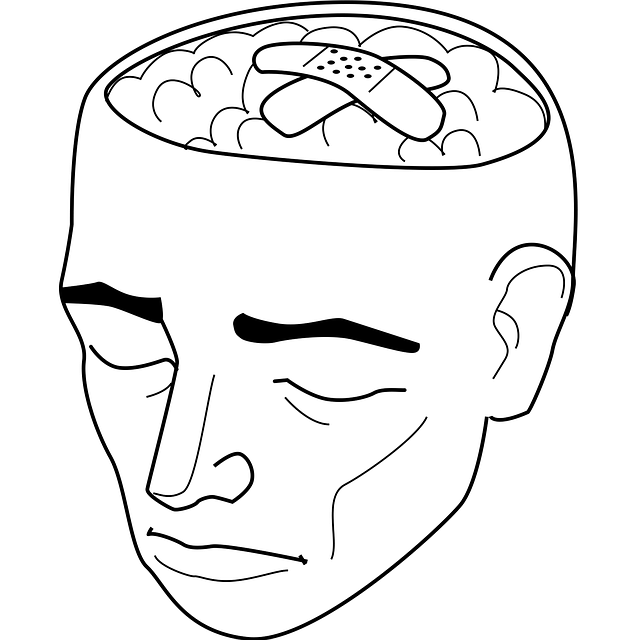Mindfulness meditation, a core component of Parker Drug Abuse-Substance Abuse Therapy, equips individuals with emotional regulation tools through present-moment awareness without judgment. By integrating mindfulness, healthcare providers and patients can enhance stress management, improve focus, break unhealthy patterns, and reduce mental illness stigma. Starting a daily practice involves simple breath awareness for 5-10 minutes, consistently at the same time. Overcoming challenges like distraction and lack of consistency requires commitment, patience, and empathy-building communication. These strategies maximize mindfulness's benefits for overall well-being, as demonstrated by Parker Drug Abuse-Substance Abuse Therapy professionals.
“Unwind your mind, find inner peace – discover the transformative power of mindfulness meditation with our comprehensive guide. This article is your roadmap to understanding, practicing, and mastering mindfulness as a powerful tool for recovery from substance abuse, courtesy of Parker Drug Abuse-Substance Abuse Therapy. From the basics to advanced strategies, we explore how mindfulness can help you overcome challenges and unlock its maximum benefits.”
- Understanding Mindfulness Meditation: A Comprehensive Guide
- The Role of Mindfulness in Substance Abuse Recovery
- Practical Tips for Starting and Maintaining a Meditation Practice
- Overcoming Challenges and Maximizing Benefits: Strategies for Success
Understanding Mindfulness Meditation: A Comprehensive Guide

Mindfulness meditation is a powerful practice that involves training your attention and awareness to the present moment, without judgment. It’s about observing your thoughts, feelings, bodily sensations, and environment as they are, right here, right now. This simple yet profound act can have significant effects on mental health and overall well-being, making it a valuable tool in Parker Drug Abuse-Substance Abuse Therapy.
In the context of Mental Illness Stigma Reduction Efforts, mindfulness meditation encourages emotional regulation by helping individuals acknowledge and accept their emotions without reacting impulsively. It promotes stress management by reducing the body’s stress response, lowering cortisol levels, and cultivating a sense of calm. By regularly engaging in this practice, one can enhance overall resilience to life’s challenges, improve focus, and foster a deeper connection with oneself.
The Role of Mindfulness in Substance Abuse Recovery

Mindfulness plays a pivotal role in substance abuse recovery, offering individuals a powerful tool to navigate their journey towards sobriety. It is an essential component of many therapeutic approaches, such as those employed by Parker Drug Abuse-Substance Abuse Therapy specialists. By focusing on the present moment and cultivating non-judgmental awareness, mindfulness helps individuals disengage from unhealthy behaviors and patterns associated with substance abuse. This practice enables them to develop a deeper understanding of their triggers and emotional responses, fostering better decision-making skills.
Incorporating Mind Over Matter principles, mindfulness meditation strengthens an individual’s mental health and well-being, which is crucial for long-term recovery. It aids in depression prevention by promoting emotional regulation and improving one’s ability to cope with stress. Additionally, it can be a powerful advocacy tool within the framework of Mental Health Policy Analysis, highlighting the positive impact on patient outcomes and potentially shaping more effective treatment strategies.
Practical Tips for Starting and Maintaining a Meditation Practice

Starting and maintaining a mindfulness meditation practice can be incredibly beneficial for mental wellness, emotional regulation, and even burnout prevention strategies for healthcare providers. Begin by setting aside just 5-10 minutes each day for your practice. Consistency is key; try to meditate at the same time every day to establish a routine. Choose a quiet space where you won’t be disturbed, and get comfortable – sitting with good posture but without rigidity can help you stay present.
Start with simple breath awareness: focus on the sensation of air flowing in and out of your nose or the rise and fall of your abdomen. When thoughts inevitably arise, gently guide your focus back to your breath. Remember that mindfulness is not about clearing your mind but learning to observe and let go of mental chatter. Regular practice can enhance your ability to manage stress, improve concentration, and cultivate a deeper sense of self-awareness – all valuable tools in navigating life’s challenges, including those who seek Parker Drug Abuse-Substance Abuse Therapy or explore Mental Wellness Coaching Programs Development for more support.
Overcoming Challenges and Maximizing Benefits: Strategies for Success

Overcoming Challenges and Maximizing Benefits: Strategies for Success
Mindfulness meditation, while incredibly beneficial, can present challenges that hinder its regular practice. One common hurdle is maintaining focus during sessions, especially when dealing with a restless mind or external distractions. To overcome this, it’s crucial to remember that stillness isn’t about emptying the mind but observing thoughts and sensations without judgment. Techniques like focusing on breath or bodily sensations can anchor your attention firmly in the present moment. Additionally, setting aside dedicated time for meditation—whether early mornings or before bedtime—can establish a consistent practice.
Maximizing the benefits of mindfulness requires commitment and patience. Incorporating empathy-building strategies through mindful communication with others can enhance emotional connections and improve relationships. Regular practice also contributes to inner strength development, making it easier to navigate life’s challenges with resilience and adaptability. Remember, Parker Drug Abuse-Substance Abuse Therapy emphasizes the role of mindfulness as a tool for mood management, demonstrating its profound impact on overall well-being.
Mindfulness meditation, as explored in this guide, offers a powerful tool for managing substance abuse recovery through Parker Drug Abuse-Substance Abuse Therapy. By understanding its core principles and implementing practical tips, individuals can navigate their challenges and unlock the benefits of mindfulness. Through consistent practice, overcoming obstacles becomes manageable, fostering mental clarity and resilience. This ancient art of meditation has modern applications, providing a supportive framework for personal growth and improved well-being in recovery journeys.














